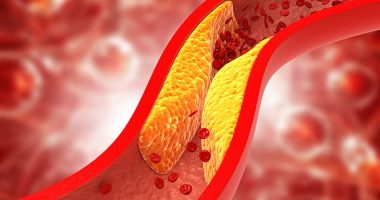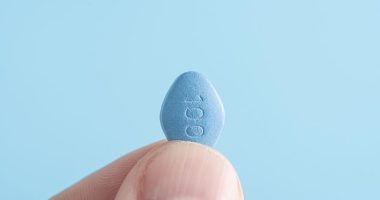Ozempic users have been complaining of weird changes to their sense of taste while taking the weight-loss drug — particularly when it comes to sweet treats.
And now scientists in Europe believe they have found out what is causing so-called ‘Ozempic tongue’.
A study showed that some people who take semaglutide — the active drug in Ozempic — experience a change to a gene on the tongue involved in taste.
They also found that participants experienced sweet tastes ‘more intensely’ than those who had not used the drug.




The above show two patients on Ozempic who said their craving for sweet treats was lowered while they were taking the drug
It could explain why Ozempic forums are filling up with comments complaining over being unable to consume favorite treats, from chocolate to wine to donuts.
Dr Mojca Jensterle Sever, an endocrinologist in Slovenia who led the research, said: ‘People with obesity often perceive tastes less “intensely” and they have an inherently elevated desire for sweet and energy-dense food.’
‘[But] the present study demonstrated that semaglutide improved taste sensitivity in women with obesity.
‘It means that the detection threshold for different concentrations of four basic tastes [including sweetness] were improved.’
Semaglutide may have caused the shift because if mimics the fullness hormone GLP-1, which studies show is also linked to taste perception.
Studies in mice, for example, show that those who don’t have the GLP-1 hormone suddenly have a greatly reduced desire for sweet foods.


Ozempic has taken the US by storm, for its promise to help people lose weight with little more than a weekly injection




Patients have also described reduced cravings for other foods while on the drug, including fast foods and alcoholic beverages such as wine
It is also possible that not eating sweet treats for a long period while on Ozempic may make someone more sensitive to sweet treats when they return to consuming them.
The study was presented at the Endocrine Society’s annual meeting in Boston, Massachusetts, on Saturday.
It is yet to be peer reviewed
In the paper, scientists recruited 30 obese women and administered half of them with Ozempic for four months.
During the trial, their taste sensitivity was measured by placing strips containing all four basic tastes — sweet, salty, sour or bitter — on the tongue.
Scientists placed strips with differing taste intensity of each on the tongue, with participants asked to reveal when they detected a flavor.
Participants also had some tongue cells removed for genetic testing during the study and underwent MRIs before and after tasting something sweet following a standard meal.
Dr Sever added: ‘Clinicians will likely correlate the findings with reports from their patients on changes in desire for certain foods, which go beyond broad changes in appetite and satiety that help them lose weight.’
Scientists decided to study semaglutide’s effect on taste after noting mice that didn’t have GLP-1 were much less sensitive to sweet treats.
Source: Mail Online








